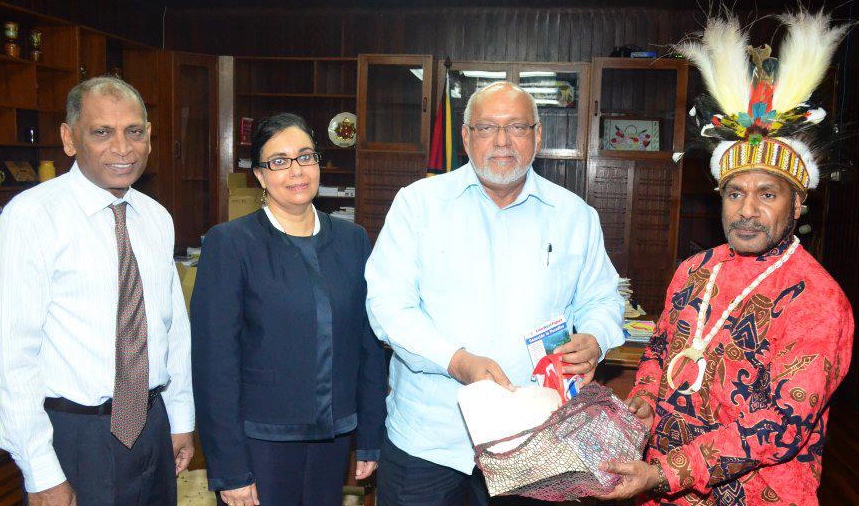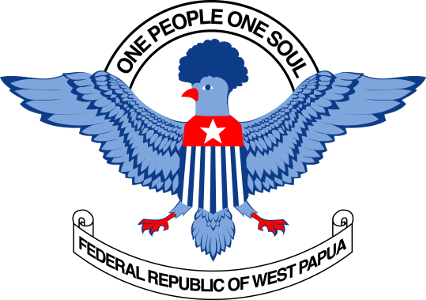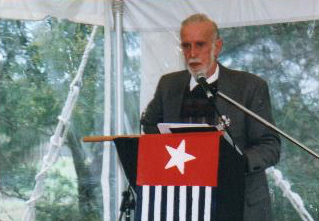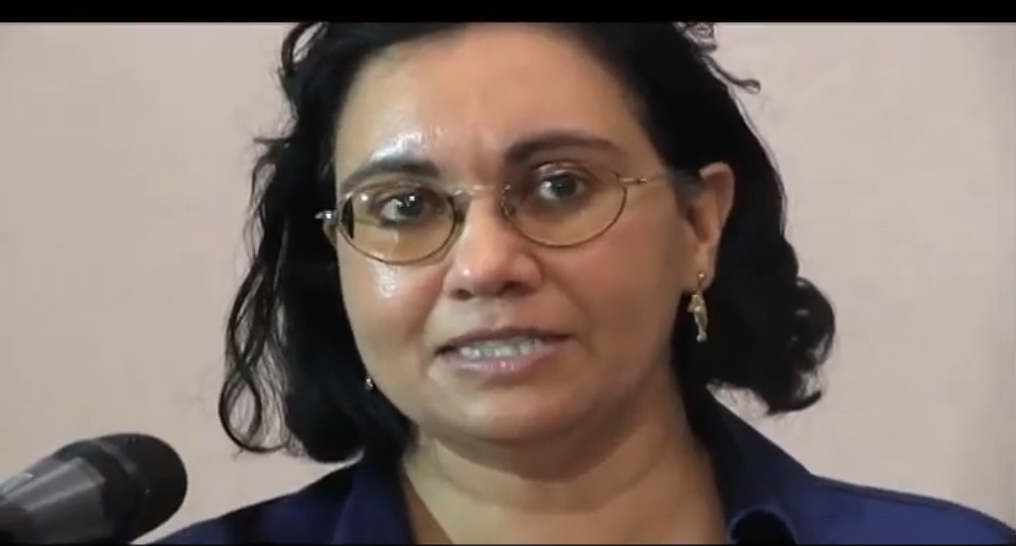Two important legal documents by ICJ lawyers: George Lambert (2000) West Papua: real-politik v international law; and Melinda Janki’s (2010) Papua’s right to self-determination under international law, which both analyse and dissect the New York Agreement (1962-1969).
George Lambert was a judge with the Australian Family Law Court judge between 1977 and 1990, and passionately concerned about the West Papuans’ and East Timorese’ right to self-determination, and Indonesia’s abuse of international law in taking over both nations.
WEST PAPUA: Real-Politik v International Law, GE Lambert ICJ, 2000
This 84-page paper sets out the facts and the principles of International Law relating to the process of decolonisation of the former territory of Netherlands New Guinea during the period between May 1960 and 1969, which culminated in a resolution (passed by a vote of 84 to nil with 30 States abstaining) that formally “noted” but didn’t formally reject the result of the Act of Free Choice that took place betwee July and August 1969. The Act of Free Choice was stage managed and shrouded in a web of intrigue, bribery, duress by threat, and coercion by propaganda and fraudulent promises in which a mere 1025 carefully selected, indoctrinated and controlled members of its indigenous population of almost 800,000, under the close scrutiny of armed Indonesian security personnel agreed unanimously to commit their peoples to integration of their homeland with the State of Indonesia.
The paper asserts that by supporting that resolution, 84 UN Member States with full knowledge of the relevant facts, and without consulting their own peoples, breached their obligations under international law with full knowledge of the determination of the State of Indonesia to annex the territory of West Papua by force of arms if it could not be achieved by other means, indefinitely depriving the peoples of West Papua of their right to their entitlement as beneficiaries of the “Sacred Trust” created by Chapter 11 of the UN Charter and reinforced by General Assembly Resolutions 1514 (XV) 1960 and 1541 (XV) 1960; condemning them to domination and exploitation by a totalitarian neo-colonising regime.
The purpose of the paper is to expose to the peoples of the world, whose Charter it is, and who were not consulted by their Governments involved in that decision, the Real-Politik involved in the subversion of the Purposes and Principles of the United Nations Charter and, in particular, its provisions relating to Self-Determination for peoples of non-self-governing territories, and its prohibition against the use by states of armed force against other States or Territories and, notably, UN GA Res. 1541 (XV), 1960, designed to ensure that the indigenous inhabitants of West Papua, as citizens of a non-self-governing territory, were enabled to exercise a valid choice in accord with their freely expressed will to achieve complete independence and freedom, or free association with an independent state or integration with an independent state.
Resolution 1541 (XV) expressly declares: “integration should be the result of the freely expressed wishes of the territories peoples, acting with full knowledge of the change in their status, their wishes having been expressed through informed and democratic processes, impartially conducted and based on universal adult suffrage. The United Nations could, where it deems necessary, supervise these processes.” Ethnically and culturally, the vast majority of the peoples of the colony of Netherlands New Guinea, being of Melanesian, Micronesian and Polynesian origin and with Christianity the major religion cultivated since the Dutch East India Company gained control of most of the territory in 1600, have little in common with the vast majority of their Indonesian neighbours.
Click to read/download
Lambert, George, 2000. West Papua, Real-politik v International Law
Click to read/download
Lambert, George, 2001. Summary, West Papua, Real-politik v International law
Click to read/download Lambert GE 2000, Endnotes
Melinda Janki is the Co-founder of International Lawyers for West Papua, which was launched in the British Parliament in October 2008, with branches opening in the European Parliament and Port Moresby in 2009, the Scottish Parliament in 2010, the Australian Parliament in 2012, the Guyanese Parliament in 2012, and Vanuatu Parliament in 2013.
West Papua and the Right to Self-Determination under International Law, Melinda Jenki ICJ, 2010. In 1969 West Papua, a former Dutch colony, was classified as an Indonesian province following an act of self-determination carried out under Indonesian administration. This paper examines the act of self-determination and concludes that it was a violation of the right of self-determination held by the West Papuan peoples under international law. The paper examines Indonesia’s territorial claims and argues that these claims do not justify Indonesian sovereignty over West Papua. The paper concludes that Indonesia’s presence in West Papua is illegal and that this illegality is the basis for continuing conflict in West Papua. The paper ends by suggesting that there should be a proper act of self-determination in accordance with international law, to settle finally the international status of West Papua. The paper was first published in the West Indian Law Journal, Vol. 23, No. 1, May 2010.
Click to read/download
Melinda Janki, West_Papua_and_the_right_to_self-determination_under_international law
Click to read/download Melinda Jenki’s short legal article with historical photos
https://www.ulmwp.org/west-papua-and-the-right-to-self-determination-under-international-law-melinda-janki
Youtube record of Melinda Janki’s presentation of West Papua’s case to the European Parliament in Brussels on 26 January 2010
https://www.youtube.com/watch?v=vqKr4bSPP7I

Melinda Janki, at the launch of the International Parliamentarians for West Papua in Guyana, South America, on 2 December 2012. With Benny Wenda (Chairman, United Liberation Movement for West Papua) and Donald Ramotar (President of Guyana).
The FRWP West Papua Office in Docklands (Victoria, Australia) has published two other legal treatise on West Papua’s self-determination, which can be bought at the office but are also available online to read/download:
1. West Papua: Decolonization, Boundaries and Self Determination: a summary of modern West Papua’s legal history and future prospects by Annette Culley (2016)
This is remarkable scholarship. It is the first comprehensive analysis of the legal processes used and abused by the international community to take possession of my homeland in the 1960s” Jacob Rumbiak, Minister for Foreign Affairs, Immigration & Trade, Federal Republic of West Papua
“I encourage all thinking international citizens to read this book. It is a most informative treatise on the legalities of West Papua’s struggle for independence and a remarkable treatment of the difficult principles of international law” Glenn McGowan QC, Chair, International Commission of Jurists in Victoria
Download/print at: https://dfait.federalrepublicofwestpapua.net/wp-content/uploads/2017/06/West-Papua-Decolonization-Boundaries-and-Self-Determination-Annette-Culley.pdf
2. State Responsibility in International Law by Annette Culley (2017)
This comprehensive analysis of the principles governing when and how a State is and can be held responsible for breaches of international obligations was launched by ISABELLE SKABURSKIS, a lawyer at the Supreme Court of Victoria and Secretary-General of the International Commission of Jurists Victoria.
It affirms that States have a responsibility to protect all those within their territory; that third States have a right and obligation to complain of wrongful acts committed by a sovereign State; and finally, that sovereignty comes under question where a people within a sovereign state are subject to alien subjugation or serious violations of their human rights.
Ultimately the paper augments West Papua’s legal arsenal for independence from the Unitary Republic of Indonesia.
Download/print at: https://dfait.federalrepublicofwestpapua.net/wp-content/uploads/2017/06/State-Responsibility-in-International-Law-by-Annette-Culley.pdf
3. We also recommend Raf Manji (2012) International Law, Statehood, and Self-determination in the 21st Century: the West Papua Claim
Download/print at: International_Law_Statehood_and_Self-Det


